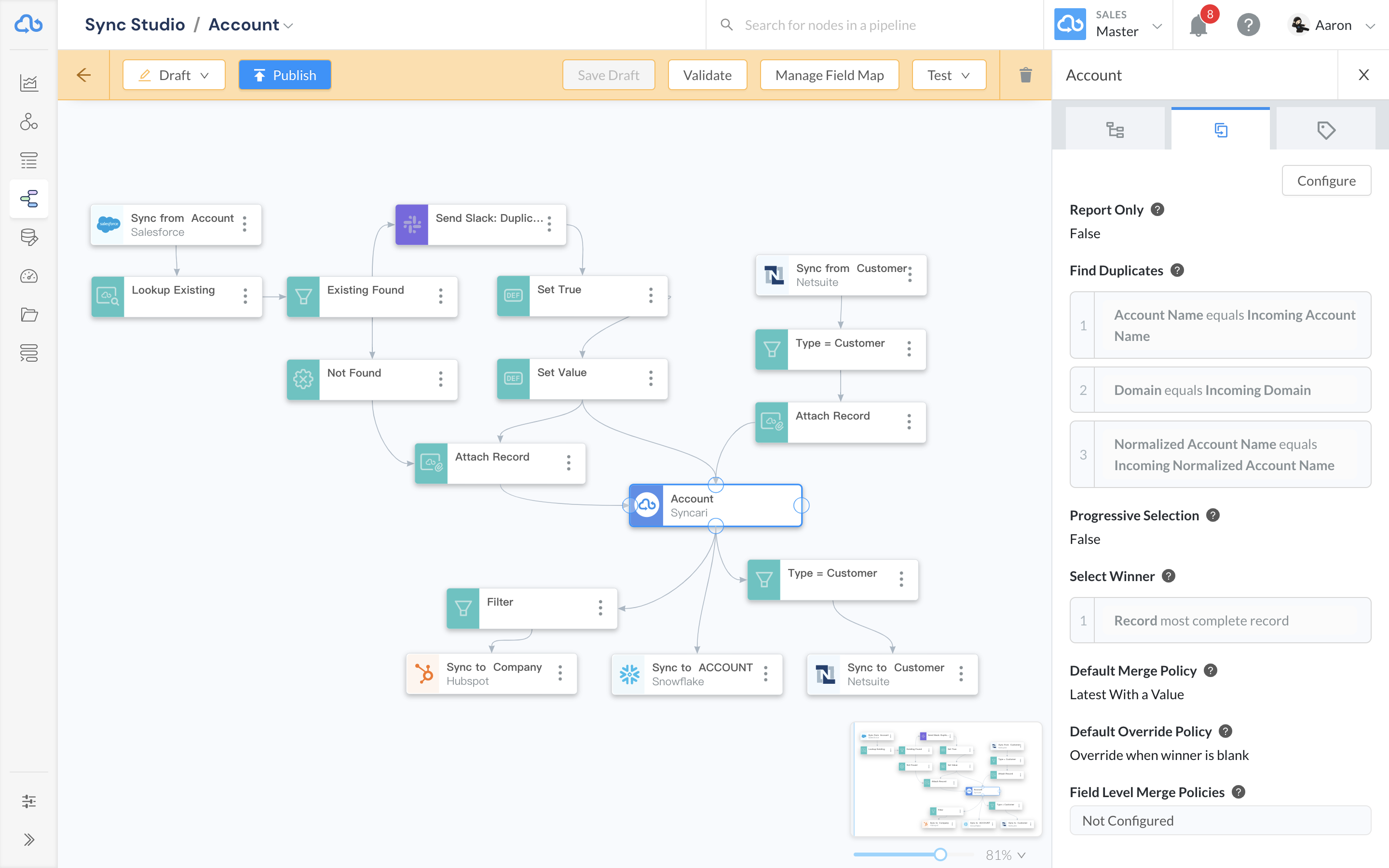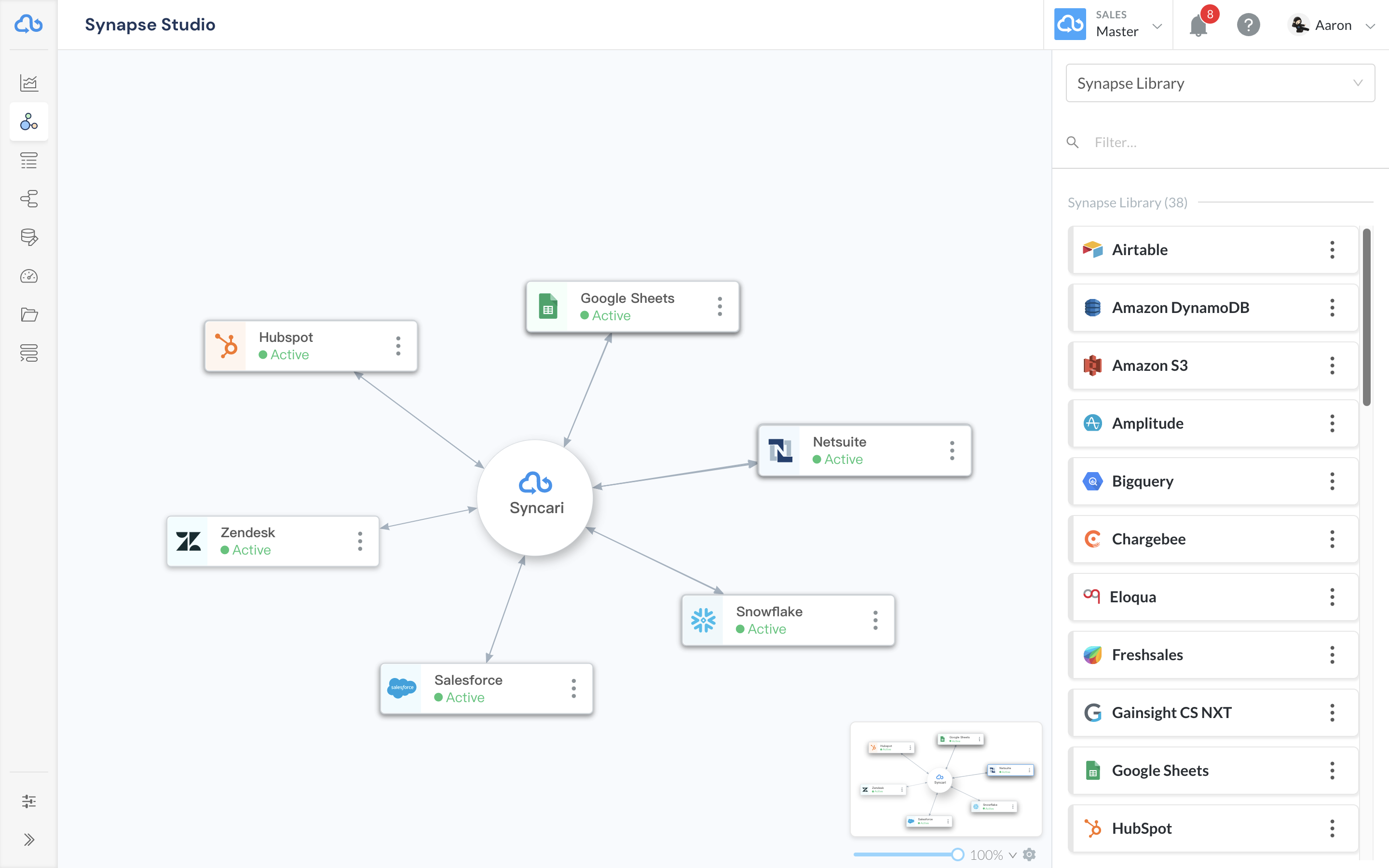
The Single Source of Truth is Dead
Your sales, marketing and CS teams need quality data at their fingertips. Distributed Truth is the answer.

Your sales, marketing and CS teams need quality data at their fingertips. Distributed Truth is the answer.
We hear it all the time – “data quality in sales, marketing, CS and finance systems is still unsolved.” The single source of truth approach was never meant to provide high quality data to all GTM teams. It either consolidates in the CRM, or in a warehouse. Either way, your GTM team as a whole suffers.
It’s time for a new approach.
It may make sense to analyze product data points out of a warehouse. But sales, marketing and CS teams need greater data agility and automation. They need stateful sync, global deduplication, and unified reporting.

CRMs have highly restrictive data structures and limited capability to integrate with other tools and databases. Don’t leave marketing and post-sales teams in the dust by overinvesting in CRM data quality for sales support.

See firsthand how Syncari unifies your GTM tech stack like never before.
Distributed Truth refers to the use of stateful sync to unify multiple systems together, so they’re all working with the same records simultaneously.
In other words, your CRM and your marketing automation platform and your CS tool and your billing tool and your user data warehouse can all be kept in sync.
CRMs such as Salesforce and HubSpot have very restrictive, limited data structures. The moment you need custom objects, as is common for “single-person companies” or “parent accounts/companies”, you’re essentially hacking the inherent data model.
To understand the nuances of this, we recommend reviewing a few longform articles we have on the subject:
Glad we caught you before you tried to make one. As you can see, Single Source of Truth was a necessary evil for a time — when dashboards could only be produced from a single dataset.
But with Syncari’s patented multidirectional, stateful sync, you no longer need to build a single source of truth for all your customer data.
That depends on your business model and how you use data. If you’re a marketplace application, a data vendor, or otherwise have thousands of users producing millions of combined events, a warehouse can be very useful for experimenting with product-based triggers, user journeys. In some cases, it’s vital to modeling saturation dynamics, or leveraging machine learning on top of user data to optimize consumption.
However, it is far from the best approach for providing GTM teams with accurate data in their systems. And many dashboards can be built without passing through a warehouse using Syncari Insights.